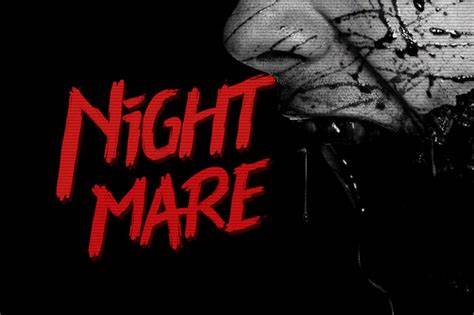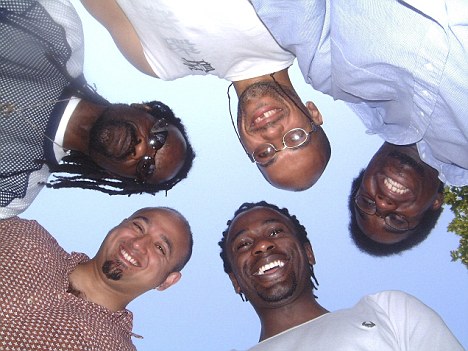Coming of Age
A Thing of Value
28-Dec-2022“You should not be doing that.”
I looked down at the frail bird of a woman leaning on her cane in front of me. Her eyes were the kind of faded blue you can only get by leaving denim out in the sun too long. They nested in a mass of wrinkles, a face like a dried apple doll. Still, there was a sharpness in her glare that drilled into me from a good foot and a half below my chin. I’d hit 6’ this summer, so this lady was short, but she also looked like she wasn’t going to take any lip from anyone.
I had been warned to be polite to Mrs. Grunwald, the lady whose lawn I was supposed to rake, or else there would be Consequences. But this was not Mrs. Grunwald, who is a sad blob of antiquity melting into her recliner by the front window. I had been introduced to her earlier by my probation officer who recited a glowing recommendation of my character which went something like this: 1) “Dylan is a putz and a wastrel.” Gee, thanks. 2) “Dylan is on the brink of ruining his life.” Great for my self-esteem. If I had any. 3) “Dylan has been arrested for petty theft, criminal mischief, and destruction of public property.” I plead the fifth. 4) “As Dylan is not yet 18, he cannot be prosecuted for his crimes, so the Consequences of his actions are community service for which he will be raking your lawn.”
Not going to lie, his report was largely accurate, but left out the more entertaining details. It was just the petty theft that got my crime spree rolling. I was apprehended for stealing a road sign (“Welcome to Oakland!). The Consequence for that was to mow the overgrown lawns at the town park. Which I did. I mowed a complex labyrinth in the fields, and little kids were having a blast running around in it when some guy looked out his third-floor window and could read the words, “Oakland Sucks” worked into the design. He complained. I was charged with more community service.
My next assignment was to spray wash the graffiti off the side of the school gym. Which I did. I did not tell them that the original graffiti was my own work. Truthfully, washing the brick wall made me realize that my original effort (OK, it was a cock and balls. I’m 17) was pretty lame. So, once I had a sparkling blank canvas all cleaned up for myself, I came back that night and painted a tasteful mural of students laying on the ground with books and laptops stacked on them, crushing them. I felt it made a statement. Consider me Oakland’s Banksy.
They considered me a repeat offender. So now I have to rake the leaves off old people’s lawns. I’d been frisked for spray paint and personally escorted to Mrs. Grunwald’s house by Mr. Arsenault, my probation officer. His parting words were, “Rake crop circles into Mrs. Grunwald’s lawn and there will be Consequences.”
So, I was raking crop circles in Mrs. Grunwald’s lawn when the voice of not-Mrs. Grunwald drifted up from chest height saying, “You should not be doing that.”
I leaned on my rake, breathing in the scent of dried oak leaves. This little smudge of a town isn’t called Oakland for nothing. I studied the child-sized human before me. If she was anything under 90 years old, I would be surprised. Now as I mentioned, I’d been told to be polite to Mrs. Grunwald, but that didn’t cover this intruder, who, judging by her clothing, had emerged straight out of the last century through a fold in the time space continuum. Still, I didn’t feel like being rude to someone this old. I mean, really, it’s shooting fish in a barrel at some point.
Instead, I explained, “I’m supposed to rake this lawn.”
She looked at the designs I had raked into the yard, raised an eyebrow, and smiled. That surprised me. I was dead sure she’d stab a finger in my chest and give me a stern “Young man” lecture. Instead, she said, “Leaves should be left to rot into the soil. They provide a home for larvae and biodegrade to form a nutritious compost for the soil.”
Well now. This had potential. My community service was environmentally damaging. I definitely shouldn’t be doing anything environmentally damaging.
I set the rake against a tree immediately, interested in hearing more about how I could righteously get out of doing what I was supposed to be doing.
“I’ll show you what dead things are good for,” she said, and tottered past me, headed to the yard next door. Her steps were dangerously tipsy over the humped mounds of leaves. If she fell down, I’d have to try to get Mrs. Grunwald out of her chair to phone for an ambulance. It seemed safer to just offer this frail pinnacle of old age my arm.
She took it, her hand like the pale claw of an albino owl. She had a grip like iron and a pace as slow as death. By the time we reached a gate in the white picket fence separating the two properties, I felt a lot closer to death myself. I was thinking I’d shake her off once I got her through the fence, but on the other side, it was like another dimension, the polar opposite of Mrs. Grunwald’s square quilt of lawn. It was an anti-lawn, a wild disorganization of growing things, an explosion of color and smells with bees lacing through all the foliage humming. It reminded me of a botanical garden my mom had taken me to before she died. It was one of the last happy memories I had of her before cancer decided it deserved her more than I did. I think she knew at the time that she was dying. She kept talking about the life in the garden, the bees, the blossoms, the earthworms and such.
This lady’s garden was like that. Full of life. I don’t know a lot about plants, but there were flowers of all sizes mixed in with monster tomatoes, edible looking bunches of green leaves, huge pumpkins peeking out from underneath purple bushes, and apple trees fat and heavy with fruit. A loamy path wove around through it, leading this way and that. It gave the impression of secrets, of places to hide.
“Quite beautiful, isn’t it?”
“Yeah, ma’am. It is.”
She laughed, a sound like wind that is feeling a bit frisky. “You may call me Eva.” She fanned her hand at the garden. “This is what can be achieved if you do not rake your leaves. They should be left for compost. And other things. Fish scraps are very good for instance.”
I sensed a horticultural tour threatening, one above my pay grade as a criminal probationee, but I didn’t really want to go back to Mrs. Grunwald’s. Then again, my probation officer was going to check on me at the appointed hour of 4:00, meaning he’d see all those crop circles and then there would be Consequences.
The tiny garden gnome pointed at her back door, hanging open in the breeze. I figured I should probably take her up the two steps and get her safely inside. Then I could make my getaway.
Which is not what happened at all. I got her into her cheerful, sunny kitchen and suddenly she was all business, making tea and jabbing her cane at a fat pottery pig on the counter, saying only, “Cookies.” A growing lad needs his strength, so I lifted the pig’s head and nabbed a handful. She gave me a stern look and tapped her cane on a cupboard. “Plate.” She then made me carry a whole tray of tea and cookies over to the polished wooden table. If anyone from my class looked in the window and saw me acting as a maid, the ridicule would never end. Not that it did anyway. In my shoes, being the butt of casual insults and disdain is the status quo.
But I never turn down food. The cookies were homemade, buttery deliciousness. As I was shoveling them down, she asked, “So why is it you are raking Mrs. Grunwald’s yard?”
I gave her an edited version of Mr. Arsenault’s resume of my character.
She didn’t seem to be disturbed by my criminal ways. “And why is it you do these things?”
I had wondered the same thing myself. “I just hate this fu…this shi..this town.” It can be hard to be polite.
“Why is that?” She fixed me with her denim gaze. Why? I thought about my mother, dead because we couldn’t afford medical care to treat the cancer in time. I thought about having to live with my grandmother who was, and I kid you not, a legit hoarder. Her home was crammed with useless junk because she would not throw out anything. I mean anything – used take out containers, empty jars, paper towel rolls, old mail, you name it. Her house was full of all that disgusting crap while the only space for me, her grandson, is either in the front hall in the draft seeping under the door or in a rusted Impala out in the driveway. The town had tried to evict her. And failed. The state tried to get me removed from her care. And failed. They gave up since I’ll be that magical age of 18 soon and not their concern. Whenever adults found out about my life, they’d look concerned until they couldn’t fix my problem. Then they just look frustrated, like I was the problem for them. So, I don’t tell people.
Except I told this old lady. The whole thing fell out of me like garbage tumbling out of a split trash bag. In the silence that followed, I studied my knees. “Your grandmother is unable to discard that which is useless to make for you some space?”
I nodded at my knees. It’s not easy to admit out loud, to someone in a nice house, that I sleep in the Impala.
She looked concerned, but she didn’t offer helpful advice or optimistic solutions. Instead, she said, “It can be very hard when life is unkind.” I could tell she meant it by the way she looked down at her teacup doing a little shaky jig in the saucer. She let go of it. “Sometimes, nothing makes you feel better. Except maybe to show everyone you do not care.”
I nodded, since she’d pretty much hit the nail on the head.
After a moment, she pushed the fancy teacup aside, and slowly rolled up the sleeves of her sweater to lay her forearms down on the table between us. There on the tissue paper skin of each wrist was a long shiny scar. “I tried to show everyone that I did not care once.”
Whoa! People that old are not supposed to have a past like the one laying on the table before me.
“What happened?”
She got up, tottered into another room, and came back holding a picture frame in her hand.
“My family.” The picture was from when the world was black and white. In it, a bunch of stern-faced people posed in front of a narrow brick building. She pointed to a slim teenaged girl, probably my age, seated on the front steps. “This is me.” Her finger brushed across the rest of the faces. “They are all dead.”
Holy crap! You don’t just drop something like that into a conversation. There were like 13 other people in the photo.
“All of them?”
“Yes. The War. The bombers came so fast. They spread out all across my hometown, all at once.” She made small exploding flower shapes with her hands. “Everywhere. Our family home was hit directly. My mother, my father, my grandparents, my brothers and sisters, aunts, uncles…all died. It was in September, 1944.”
Obviously, I’d knew about World War II, but I never thought I’d meet someone who was there when history was happening. “How come you survived?”
“I had snuck out that night to meet my young man. We heard the planes coming in and ran to shelter in the cellar of the dance hall. I knew my home had been hit. I just knew, in here.” She closed the bird claw hand onto her chest.
“And I was right. The next day,” she held out her hand flat. “Nothing. Just fire. Everywhere fire. Our city was very old, many wooden buildings. It burned.”
“So, you tried to kill—"
“No.” She cut me off, shaking her white head firmly. “Then, I had something to live for. My hate.” That was a weird thing to hear a sweet little old lady say.
She looked out over her garden framed by the gleaming windowsill. “All that winter I lived in the rubble, in cellars and bomb shelters and burnt-out buildings, fighting people for scraps of food. You cannot imagine what it is like to fight with a hungry child for food.” Her lips thinned in a curl of distaste. “Oh, how I hated our enemy. The anger. I lived for it.”
“What happened?”
“I could speak English and in one of the shelters they had a wireless. I would translate so that everyone could hear news of the war. One night we tuned into the enemy radio station. The …how you say…broadcaster…he was shouting, bombs were exploding in the background. And then I heard a woman cry out for a child. But there was no answer.”
I waited. There had to be more to this story. What happened to the woman, the child?
She studied me. “There was no answer, do you understand? The woman cried out again.” She moved her gaze back out the window. “That is when I finally heard them.”
“Who?”
“The enemy. I could hear them. They sounded just like us.” She stopped talking. A clock ticked somewhere inside the house, falling into the silence in a little drumbeat. “Then I couldn’t hate them anymore.”
“It must have been really hard to stop hating the Germans.”
She laughed softly, a windy chime of humor that didn’t belong in the kitchen just then. “Young man, I am German.”
Whoa! I needed to pay more attention in history class. “So, like, the umm…British?”
“The RAF yes. And the Americans. What wasn’t destroyed of Darmstadt by the Allied bombing, was destroyed by the fires. Those fires took hold inside of me, do you see? And when the fires burned out, then I had nothing left to live for.”
“What did you do?”
“This is what I did.” She twisted her forearms up.
I let that sit for a minute while she pulled her sleeves back over her thin, scarred wrists and the clock marked the time. Time that she almost never had.
“So, umm, how did you end up here then?”
Rubbing her wrists, she explained. “After I did this, I was found and taken to hospital. From there, I recovered. Slowly. With my English, I became an interpreter. After the war I ended up coming here, to the United States, working as a translator.” She lifted an eyebrow. “Working for the enemy.”
“So, you don’t hate us anymore?”
“Of course not. The enemy I had learned not to hate. It was myself I needed to learn not to hate.”
“Why would you hate yourself?” I asked. “What happened to your family wasn’t your fault.”
“No. It was not. Just as what has happened to you in your life is not your fault.” She bit into a cookie.
I had to hand it to her. That was an excellent bait-and-switch.
“So, young Dylan. As long as you are pulling these pranks, you have something to live for.”
I didn’t see her logic.
“Let us rejoice that you are an angry young man. It means you have not given up. You have energy, yes? Verve! Take that and make something wonderful of it.”
I drew in a breath to defend myself but had to pause. It had never occurred to me that I was right to be pissed off at the shit sandwich life had handed me, but that maybe I could choose what to do with that sandwich. If she could walk away from being pissed off at the world for killing her family, I could at least walk away from being a complete idiot. Or as Mr. Arsenault framed it, a wastrel.
There was a knock on the door. Mrs. Grunwald was standing there glowering.
“I saw you hijack this young man, Eva. He is supposed to be raking leaves and now there are a bunch of circles in my yard.”
“Entirely my fault, Janice. I just couldn’t make it back on my own.” Eva’s voice came out so frail and pathetic, I almost laughed.
Mrs. Grunwald looked like she was wise to Eva’s tricks.
Eva rested her hand on my arm. “Is there any chance I could interest you in a job when you are done with Janice? My garden needs more work than I can manage.”
I nodded. I thought maybe my mom would approve.
“In that case, I think you have some leaves to rake for Mrs. Grunwald. But would you be so good as to bring them over here? I’ll get them composting. You should never discard a thing of value.”
All Categories
-
 Adventure(4)
Adventure(4)
A slate-grey sky hung heavy over the Pre...
-
 African American(2)
African American(2)
Divine Bloodline “How can you tell the...
-
 Christian(1)
Christian(1)
“A man’s pursuit for wealth and fame...
-
 Coming of Age(2)
Coming of Age(2)
Death was accompanied by the patter of n...
-
 Fantasy(2)
Fantasy(2)
Humans can transform from solid to spiri...
-
 Friendship(2)
Friendship(2)
My fingertips almost brush yours beneath...
-
 Crime(2)
Crime(2)
CW: Gun violence, deathThe air hung heav...
-
 Funny(2)
Funny(2)
Standing over last nights carnage the pl...
-
 Happy(3)
Happy(3)
The kids at the library all quiet down a...
-
 Historical Fiction(2)
Historical Fiction(2)
13 June 1886Standing at the edge of the ...
-
 Thriller(2)
Thriller(2)
Sometimes you just have to leave the dea...
-
 Holiday(2)
Holiday(2)
It is 4:06 PM on December 31st, and my m...
-
 Inspirational(1)
Inspirational(1)
In her dream she is fourteen, running ho...
-
 Romance(2)
Romance(2)
The canister had always been there, roll...
-
 Western(3)
Western(3)
In life there are monumental occurrences...
-
 Suspense(2)
Suspense(2)
Guest rooms were always hiding things. N...
-
 High School(3)
High School(3)
It was a foggy November day when a car m...
-
 Sad(5)
Sad(5)
*Sensitive topic is death* Hello, my nam...
-
 People of Color(3)
People of Color(3)
“Betty, I’m home! Come n’ see what...
-
 Teens & Young Adult(4)
Teens & Young Adult(4)
Fini FlightTigger Warning Suicide, Viole...
-
.jpeg) Desi(3)
Desi(3)
Reference to human trafficking.I am 17 a...



